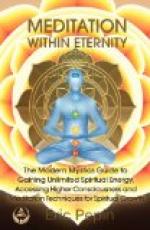It has been pointed out that Whitman more perfectly illustrates the type of the coming man—the cosmic conscious race, because Whitman’s illumination seems to have come without the terrible agonies of doubt and prayer and mortification of the flesh, which characterize so many of those saints and sages of whom we read in sacred literature. But it must not be inferred from this that Whitman’s life was devoid of suffering.
A biographer says of him:
“He has loved the earth, sun, animals; despised riches, given alms to every one that asked; stood up for the stupid and crazy; devoted his income and labor to others; according to the command of the divine voice; and was impelled by the divine impulse; and now for reward he is poor, despised, sick, paralyzed, neglected, dying. His message to men, to the delivery of which he devoted his life, which has been dearer in his eyes (for man’s sake) than wife, children, life itself, is unread, or scoffed and jeered at. What shall he say to God? He says that God knows him through and through, and that he is willing to leave himself in God’s hands.”
But above and beyond all this, is the sense of oneness with all who suffer which is ever a heritage of the cosmic conscious one, even while he is, at the same time, the recipient of states of bliss and certainty of immortality, and melting soul-love, incomprehensible and indescribable to the non-initiate. Whitman’s calm and poise was not that of the ice-encrusted egotist. It is the poise of the perfectly balanced man-god equally aware of his human and his divine attributes; and justly estimating both; nor drawing too fine a line between.
“I embody all presence outlawed
or suffering;
See myself in prison, shaped like another
man,
And feel the dull unintermitted pain.
* * * * *
“For me the keepers of convicts
shoulder their carbines and keep watch;
It is I left out in the morning, and barr’d
at night.
Not a mutineer walks handcuffed to jail,
but I am handcuffed and walk by
his side;
* * * * *
“Not a youngster is taken for larceny,
but I go up too, and am tried and
sentenced.
Not a cholera patient lies at the last
gasp but I also lie at the last
gasp;
My face is ash-colored—my sinews
gnarl—away from me people retreat.
* * * * *
“Askers embody themselves in me,
and I am embodied in them;
I project my hat, sit shame-faced and
beg.”
If any one imagines that Whitman was not a religious man, let him read the following:
“I say that no man has ever yet
been half devout enough;
None has ever yet adored or worshipped
half enough;
None has begun to think how divine he
himself is, and how certain the
future is.”
There is a sublime confidence and worship in these words which belittles the churchman’s hope and prayer that God may be good to him and bless him with a future life. Whitman’s philosophy, less specific as to method, is assuredly more certain, more faithful in effect. Whitman had the experience of being immersed in a sea of light and love, so frequently a phenomenon of Illumination; he retained throughout all his life a complete and perfect assurance of immortality.




